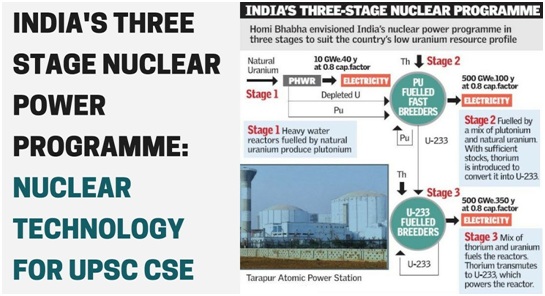New Nuclear Power Plants may pose greater risk than ‘Conventional Reactors’
According to a report released by the Union of Concerned Scientists (UCS), a new generation of advanced nuclear power reactors that are currently in development may be no safer than conventional nuclear power units.
Context
According to a report released by the Union of Concerned Scientists (UCS), a new generation of advanced nuclear power reactors that are currently in development may be no safer than conventional nuclear power units.
Concerns in the Report
- Coolant: Conventional reactors use enriched uranium fuel and are mostly cooled by water. While the developing new reactorsuse liquid sodium instead of water to cool the reactor at a lower pressure.
- Storage Concern: The nuclear waste generated needs to be safely stored underground for the order of 400,000 years or converted to less dangerous materials.
- None of the new reactors were safer or lowered nuclear proliferation than existing reactors.
- Concern regarding Sodium: The use of sodium as a coolant wouldn’t reduce the amount of waste that requires long-term isolation.
- Sodium can also burn when exposed to air or water, posing safety issues that conventional reactors, which don’t use sodium, sidestep.
- Enrichment concern: The fuel for many of the newer reactors is enriched at a much higher rate than that used in conventional reactors.
- This is risky because more refined uranium is used to make nuclear weapons.
India’s Nuclear Power Programme
|


